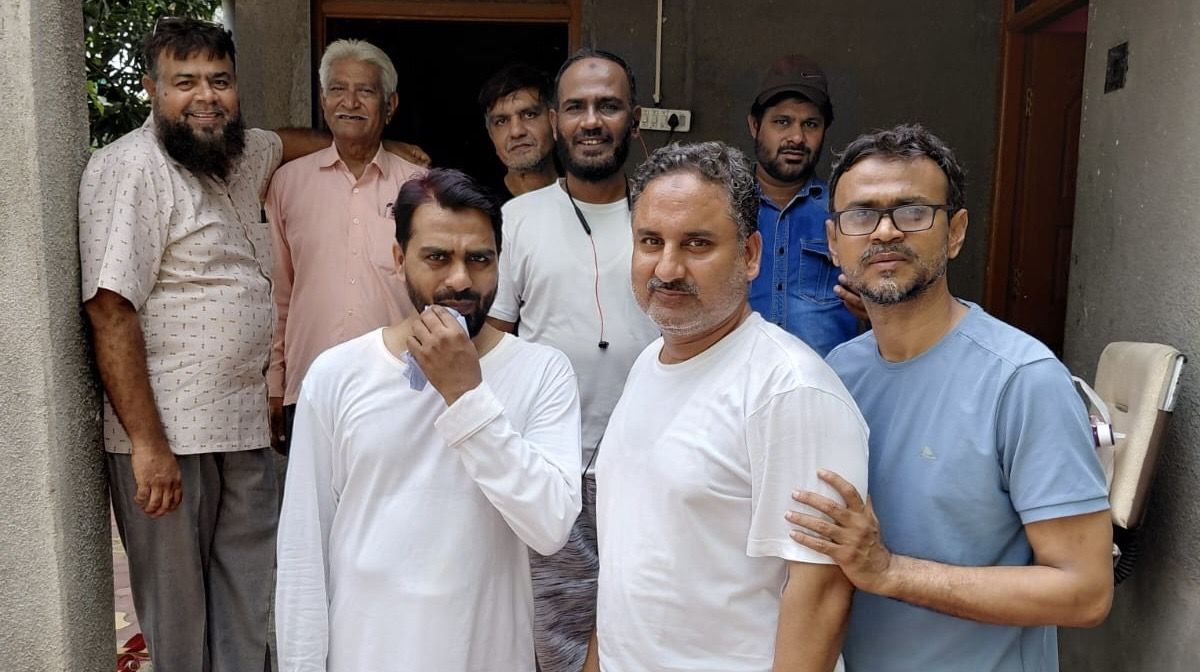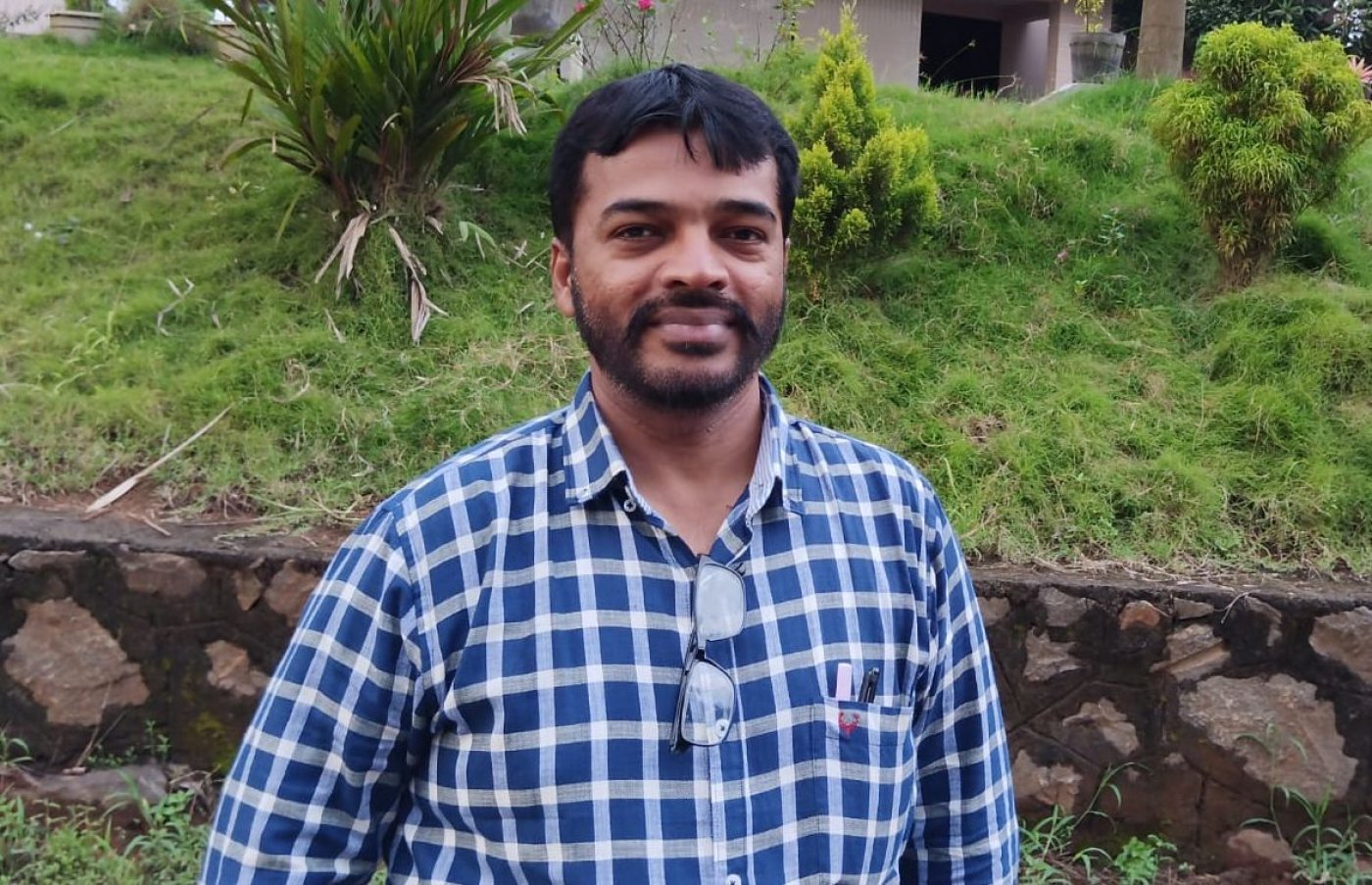Bengaluru: It was raining heavily, and school teacher Abdul Wahid Shaikh, 48, reached the Bombay High Court five minutes late for the verdict in the 19-year trial of those accused in the Mumbai train bombings case.
If he felt a sense of dread and deja vu, that was understandable.
A decade ago, a special Maharashtra Control of Organised Crime Act (MCOCA) court on 11 September 2015, was set to deliver a verdict in the same case, in which 13 accused, all Muslim men, had eagerly anticipated, convinced that they would be freed.
The city’s Anti-Terrorist Squad (ATS) had arrested them for allegedly executing a series of seven bombings in the first class compartments of seven commuter trains in Mumbai on 11 July 2006. The 7/11 train blasts, as they were known, occurred between 6.23pm and 6.29pm, killing 187 and injuring 829.
The defence had punctured enough holes in the case and the men were feeling optimistic. They had worn nice clothes, flashed victory signs to the media waiting outside the courthouse and skipped breakfast so they could celebrate with sweets after the verdict.
Instead, only Wahid was released.
Five men were sentenced to death, and seven got life imprisonment. One of them died in prison during the Covid-19 pandemic.
“The judge called out my name–accused number 8–first, and I started laughing,” Wahid told Article 14. “Then he convicted everyone else and I couldn’t stop crying. It was very sad for me. We had decided we would fight this case together till the end. We had entered jail together and we had said we would leave it together.”
For 10 years, Wahid, 48, a man who talks in a quiet voice, has carried the weight of being the only one who was freed. In all this time he has had a single-point agenda: to keep the case alive and demand justice.
So, when the Bombay High Court overturned the verdict of the special court on 21 July 2025 and exonerated all the men, it was a special moment for Wahid.
The night before the verdict, Wahid and his guests had just completed a dawaat (feast) of seekh biryani. They had finished dessert and were drinking tea when the phone rang.
Lawyer Ansar Tamboli was calling to inform them that the verdict would be read the next morning. Shaikh turned to his wife’s brother-in-law and said, “Congratulations, you will be released.”
The brother-in-law, Mohammad Sajid Magrub Ansari, was out on 40-day parole from Nasik prison from 1 July 2025 because of an illness in the family. He became the only one to celebrate the life-changing news with his family when the verdict was announced.

A Flight After Release
Wahid said it took hours before the four jails across Maharashtra—in Nashik, Pune, Amravati and Nagpur—released the 9 men. Two are still in jail on other charges.
In Nagpur, said Wahid—who spoke to all the men after release—the superintendent told Ehtesham Qutubuddin Siddiqui and Mohammad Ali Alam Sher Sheikh, the two accused jailed there, that it wouldn’t be advisable to release them in a city that is the bastion of the Rashtriya Swayamsevak Sangh.
Instead, plane tickets were bought for the two men to fly to Mumbai, and the police escorted them to the airport.
In 2024, Wahid organised a release of a book of poems by Siddique, written after the engineer got the death penalty in 2015.
Watch: The Death Row Ballad of Ehtesham Siddique
The media and relatives were spilling out the home of Mohammed Ali Shaikh in the eastern Mumbai suburb of Govandi when Wahid visited the day after the verdict. “Truth has triumphed,” Shaikh told the reporters.
But Wahid said the judgement was “incomplete”.
“The court hasn’t ordered a reinvestigation, not discussed compensation or prosecution of the real culprits,” said Wahid. “Yet even an incomplete judgement is a big thing for Muslim men in today’s India.”
The Supreme Court is due to hear the appeal filed by the Maharashtra government on 24 July 2025.
‘Everyone Was Crying’
As Justice Anil Kilor read out the judgement of the two-judge bench (Justice Shyam Chandak was the other judge), the accused listened on video links and their relatives heard the good news firsthand in court.
“The judges looked like they were under tremendous pressure, everyone was crying. The prosecutor didn’t show up in court, he was online,” Wahid told Article 14. “The judge said to release everyone with a personal bond and soon after, the judgement was uploaded.”
“In 10 minutes it was all over,” said Wahid. “Outside the courtroom everyone was hugging and calling family.”
A ‘Deceptive Closure’
The court ruled that the prosecution failed on all three planks of evidence on which it relied: eyewitnesses, recoveries and confessional statements. It underlined all the flaws in the ATS’ case from custodial torture tactics to identical confession statements and destroyed call records.
It was a dramatic trial, one in which the accused used the Right To Information Act to pick gaping holes in the ATS’ case. Some said that their call records were proof that they were nowhere near the scene of the crime.
“Punishing the actual perpetrator of a crime is a concrete and essential step toward curbing criminal activities, upholding the rule of law, and ensuring the safety and security of citizens. But creating a false appearance of having solved a case by presenting that the accused have been brought to justice gives a misleading sense of resolution,” the bench noted in its 671-page judgement. “This deceptive closure undermines public trust and falsely reassures society, while in reality, the true threat remains at large. Essentially, this is what the case at hand conveys.”
The judges thanked the legal teams of both sides who assisted the court in examining 44,500 pages of evidence. For context, the 2020 Delhi riots chargesheet filed by the police is 17,000 pages.
A Phalanx Of Lawyers
After the verdict, Wahid rushed out to buy some aflatoon mithai, the famous Mumbai sweet made of mawa, dry fruits and ghee.
Armed with sweets and flowers, relatives of the accused and Wahid first visited the Dongri office of the Jamiat Ulama-i-Hind, which bore the expenses for the trial.
In July 2025, the Times of India reported that the Jamiat was involved with around 100 cases with nearly 500 accused, including 85 on death row and 125 facing life imprisonment.
The group then headed to the office of Yug Mohit Chaudhry, who has led India’s death penalty abolition movement and who spearheaded the case for the defence (Read our 2020 interview with Chaudhry here.)
Chaudhry had roped in A-listers such as senior counsel and former Delhi High Court judge S Muralidhar, senior counsel and former Madras High Court judge S Nagamuthu, and senior counsel Nitya Ramakrishnan to argue the case.
“There is a bias in the investigation. Innocent people are sent to jail, and years later, they are released for want of evidence. By then, there is no possibility of reconstructing their lives,” Muralidhar argued in January, alleging that the investigation had a “communal bias”.
A Pattern Of Acquittals
The High Court verdict has echoes of many judgements regarding Muslim men and sloppily-investigated terrorism cases.
Despite being acquitted of terrorism charges in February 2025, a Muslim cleric from Jharkhand told Article 14 recently that the accusation that he had links with Al-Qaeda in the Indian subcontinent caused him and his family years of suffering, along with a social boycott and financial issues.
In 2021, a Surat court exonerated 124 Muslim men arrested on terrorism charges after 19 years saying it could find “no cogent, reliable and satisfactory evidence”.
You can read Kavitha Iyer’s two-part investigation of the Gujarat case below:
Part 1: How Gujarat Police Used Islamophobia To Build Terror Case With No Evidence Against 124 Men
Part 2: Exonerated, Still Anxious: ‘Harassed For Being Muslims’
In the introduction to Mohammad Aamir Khan’s book, Framed As a Terrorist, sociologist Nandita Haksar writes that “under the Indian criminal justice system it is easier to prove an innocent man guilty than for an innocent man to prove his innocence”.
Wahid's Advocacy Efforts
For the first year after his release, Wahid kept visiting his co-accused. Then he started the Innocence Network—a civil society collective to fight for those who have been ‘wrongfully prosecuted or convicted, especially under charges of terrorism’.
In 2020, he began Acquit Undertrial, a one-man YouTube channel where he faced the camera and recounted stories of men wrongly persecuted as terrorists. Last month he got his LLM degree from Mumbai University.
Wahid had spent nine years in jail before he was released. While imprisoned, he wrote a book, Begunah Quaidi (innocent prisoner) using any paper he could get his hands on including government-issued dairies and A4 sheets that he smuggled outside as he wrote.
The book has a chapter on torture. Years later, director Sudarshan Gamare read about Wahid in a book by journalist Sunetra Choudhury and that, in turn, led him to Wahid’s book.
Gamare made Wahid’s story into a Hindi feature film, Haemolymph, which was released in 2022. Through these and many other ways, Wahid kept his quest for justice alive.
Shortly after the High Court acquitted the men, Wahid uploaded a video on his YouTube channel. “They went in as young people and came out as old men,” he said in the video. “In what way will the court compensate them?”
(Priya Ramani is a member of Article 14's editorial board.)
Get exclusive access to new databases, expert analyses, weekly newsletters, book excerpts and new ideas on democracy, law and society in India. Subscribe to Article 14.

